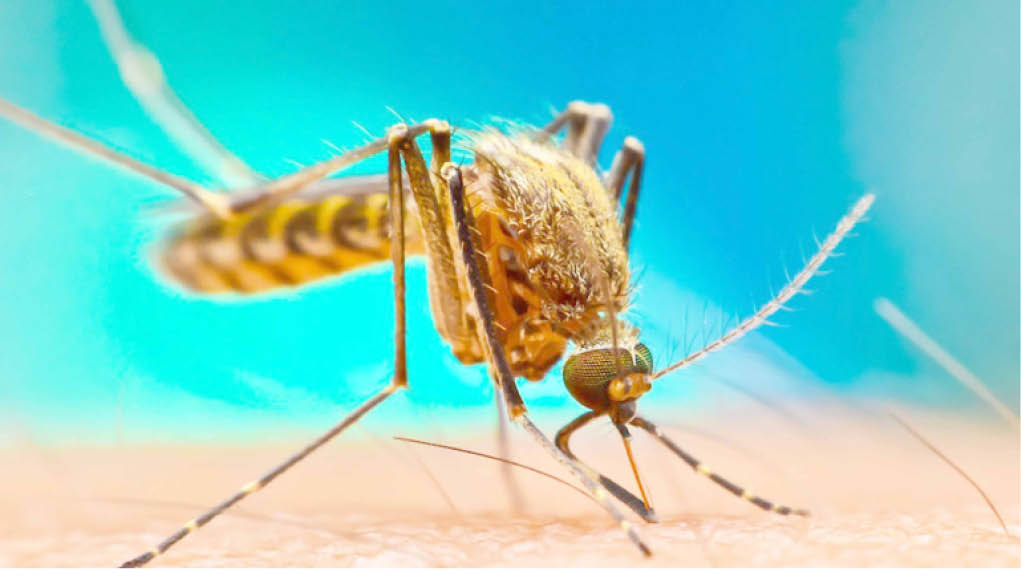Malaria killed no fewer than 290,000 persons between 2020 and 2022, an analysis of data from the World Health Organisation (WHO) World Malaria Reports has shown. Despite efforts over the years, it is estimated that over 66 million cases of malaria occur annually in Nigeria.
The data showed that Nigeria recorded 90,000 deaths in 2020, and about 200,000 deaths from malaria in 2021.
According to the 2022 WHO World Malaria Report, one out of three deaths from malaria globally occurs in Nigeria. This translates to 22 persons dying every hour due to malaria in the country. This translates to Nigeria contributing 27% to the global malaria burden in 2021.
This is happening even as some countries in the region have achieved elimination of the disease or are near elimination.
New computer programme can ‘predict’ who will develop lung cancer 10 years ahead
Study finds alternative to hip replacement
Globally, a total of 41 countries and one territory have been granted malaria-free certification from WHO with the certification of Azerbaijan and Tajikistan as malaria-free coming on March 30.
The World Malaria Day this year is marked under the theme “Time to Deliver Zero Malaria: Invest, Innovate, Implement”.
Experts have called for increased efforts to bring malaria to zero level in Nigeria.
Malaria is transmitted throughout Nigeria, with 97% of the population at risk of the disease. The duration of the transmission season ranges from year-round in the South to three months or less in the North.
It is a life-threatening disease caused by parasites that are transmitted to people through the bites of infected female anopheles mosquitoes.
Some of the symptoms are fever, headache, vomiting, diarrhoea, profuse sweating and anemia.
According to the Minister of Health, Dr Osagie Ehanire, malaria remains a major public health challenge in Nigeria. It constitutes a huge epidemiologic burden and continues to cripple the economic development of the country. It is a leading cause of mortality and morbidity in Nigeria with young children and pregnant women disproportionately affected.
He said, “It accounts for 60% of outpatient visits to health facilities, 30% of childhood deaths, 11% of maternal deaths (4,500 die yearly), and 25% of deaths in infants (children aged <1 year).”
Speaking during the launch of the 2021 Nigeria Malaria Indicator Survey (NMIS), he said in Nigeria, 9-10 persons die every hour due to malaria or malaria-related issues. Children under 5 years of age, remain the most vulnerable group affected by malaria accounting for 67% of all malaria deaths. It is a major cause of school absenteeism and low productivity.
He said, “Nigeria sadly also recorded an increase in the proportion of deaths attributable to malaria from 23 per cent in 2020 to 27 per cent in 2021 as reported by the World Health Organisation making malaria a foremost public health challenge for us a major cause of morbidity and mortality which we should be determined change.”
FG’s efforts to bring malaria to zero level in Nigeria
The minister said, “It is pertinent to note that the Government of the Federal Republic of Nigeria and its partners have made consistent and concerted efforts over the years in providing resources towards the elimination of malaria in the country, and this has resulted to millions of lives being saved.”
He said Nigeria, in collaboration with its partners, has implemented three rounds of Malaria Indicator Survey (MIS), adding that the results of the surveys showed a slow but steady decline in malaria prevalence at national level from 42% in 2010 to 27% in 2015, and 23% in 2018.
The results of the NMIS show a further decline in the national prevalence of malaria to 22% from 23% in 2018, and 42% in 2010, he added.
He said, “While this may not appear significant at the national level, at the sub-national substantial gains have been observed in several states.
“But we have noted that we are still not seeing the substantial gains we wish to see. Malaria prevalence is still higher in rural areas compared to urban areas.
“These call for some shifts in the way we do things especially in promoting health seeking behaviours within the general populace.”
Dr Perpetua Uhomoibhi National Coordinator, National Malaria Elimination Programme (NMEP) of the Federal Ministry of Health said some things being done by the programme to bring malaria to zero level in the country are mass distribution of Long Lasting Insecticidal Nets(LLN), distribution of LLN to pregnant women at antenatal clinics and children under five that have completed immunisation in public health facilities, administration of seasonal malaria chemoprevention to children at high risk in 21 states, malaria package (diagnosis and treatment) under the Basic Health care Provision Fund (BHCPF) in primary healthcare facilities, social behaviour change messages such as for people to keep their environments clean and other measures to prevent and protect themselves against malaria.
Olugbenga Mokuolu, a Professor of Pediatrics at the University of Ilorin, and national malaria technical director to the National Malaria Elimination Programme (NMEP) said, four strategies that can fast-track malaria elimination in the country are: political will, strategic information use, effective guidance and strengthening coordination.
He said some innovations being deployed in the country include keying into the malaria vaccine which will prevent malaria and also address inequity.
Improved funding required for malaria free Nigeria — NMEP
Dr Perpetua Uhomoibhi National Coordinator, of NMEP said the specific challenge hampering a zero malaria Nigeria is the inadequate funding to cover the country’s large and over 200 million population with services.
“So one of the challenges is ensuring optimal coverage for the whole country with all these services. We have not been able to achieve that because of funding.
“So even with the support we are getting from partners, some facilities are unable to get commodities; they are not sufficient to go round because of funding. So funding continues to be a challenge.”
She said every member of the public also needs to play their part by adopting preventive measures and also going to the hospital to be tested and treated when they have the disease.
Situation in Kano
Dr Ashiru Rajab, Kano State Director for Public Health & Disease Control, said in 2022 alone, more than three million hospital visits were due to the menace of malaria, though it’s a preventable disease.
He said in economic terms, malaria morbidity and mortality have led to the loss of billions of naira in drugs, non-school and work attendance, hospital stay, and other out-of-pocket expenses.
He said the outpatient attendance relating to malarial cases was 3,096,401 with total fever cases screened for malaria recorded at 3,051,213 and 2,230,752 diagnosed to have confirmed uncomplicated malaria and 2,201,284 (98.6%) confirmed cases treated free with ACTs.
He said, “To address these challenges, the Kano State Government, under the able leadership of His Excellency, the Executive Governor of Kano State, has placed a high priority on saving the lives of women and children through strengthening the health care system at all levels of care.
“It is worthy of note that between July and October of the year 2022, the state government, in collaboration with its implementing partners, spent more than three billion naira in the administration of 10,629,624 doses of malaria prevention drugs (Sulfadoxime-pyrimethamine and Amodiaquine SP+AQ) with the aim of preventing uncomplicated and a similar proportion of severe malaria death incidents among the under-five (5 years) children.
He said the government also procured anti-malarial commodities, supported personnel capacity-building, and cascaded trainings for prompt malaria diagnosis and treatment, malaria prevention, community case management, focused antenatal care and health education, advocacy communication and social mobilization, and vector management (fumigation and larviciding-LSM) worth over N462 million in order to combat and eliminate malaria across the state.
Zero malaria difficult
A health expert, Dr Abdulshakur Abdullahi, said it is difficult to achieve zero malaria these days due to environmental factors and behaviour of the people towards sanitation.
“Proactive preventive measures are key to ending malaria in our society. Both the government and public should work towards achieving this aim otherwise it will rather increase than reduce,” he said.
Also speaking, Dr. Hassan Aliyu, a medical doctor with Murtala Muhammad Specialist Hospital, said it is difficult to achieve zero malaria considering the attitudes of the public towards their environment.
He said if people will cooperate, zero level would be achieved but in a long period of time.
“ So if people didn’t adopt the behaviour of sanitizing their environment it won’t be possible.”
Malaria vaccine
The WHO in 2021, approved a malaria vaccine for children for the first time, after a pilot scheme in three African countries: Ghana, Kenya and Malawi. Ghana, and now Nigeria, have become the first countries to approve a new malaria vaccine for use in children.
WHO Director-General Dr Tedros Adhanom Ghebreyesus said, “Using this vaccine on top of existing tools to prevent malaria could save tens of thousands of young lives each year.”
The National Agency for Food and Drug Administration and Control (NAFDAC) recently granted registration approval for R21 Malaria Vaccine (Recombinant, Adjuvanted).
The vaccine is indicated for prevention of clinical malaria in children from 5 months to 36 months of age.
Dr Perpetua Uhomoibhi National Coordinator, NMEP, said the approval does not mean the vaccine is now available for use in Nigeria.
She said the vaccine is still undergoing clinical trials.
She added that the availability is also dependent on local vaccine manufacturing capacity which Nigeria does not currently have.
She said there are efforts to make the other malaria vaccine for children, RTS,S – or Mosquirix available in 2024.
Dr. Hassan Aliyu, a medical doctor with Murtala Muhammad Specialist Hospital, said the vaccine will help in reducing the cases and deaths from malaria in children.
Lynda Ozor , Malaria Programme Manager, WHO, said malaria vaccine is the latest tool in the block and that Nigeria has applied for the vaccine in the current window that closed on April 19. “We are hoping that very soon, by 2024, we will have the introduction of the malaria vaccine in the country,” she added.
By Ojoma Akor (Abuja) and Zahraddeen Yakubu Shuaibu (Kano)

 Join Daily Trust WhatsApp Community For Quick Access To News and Happenings Around You.
Join Daily Trust WhatsApp Community For Quick Access To News and Happenings Around You.

